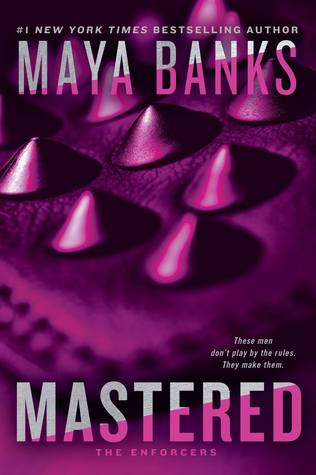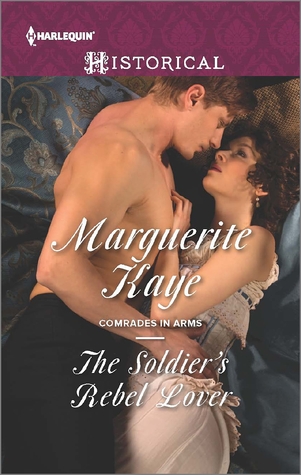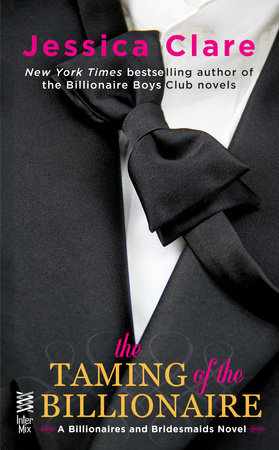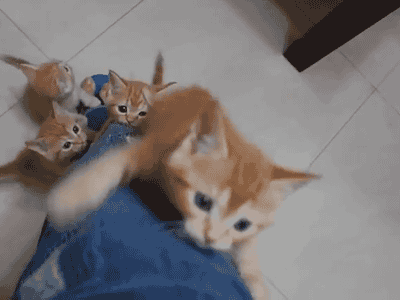I stalled out writing this post over a year ago, and I just… stopped. I’d hit a wall, and I couldn’t write anything. Read on, and perhaps you’ll see why.
For most of my life, I’ve answered the question, “How are you doing,” with, “I’m OK — I’ve been reading this book…” and then I go off on a tangent about that book. I have no idea if it’s deflection or if I actually contextualize my life through the books I read. (In other words: I have no idea if it’s healthy, this thing that I do, but I do it, so it’s normal to me.)
And it’s actually why I started this blog, so that I could get a better read (ha) on what I think about these books (and who I am). As a relatively reserved person, my choice to share all this on the Internet might seem odd. When I started this blog a few years ago, I really thought that no one would ever read it, and that was a comforting thought. Then I made friends, and I discovered that my life is so much better, richer, and more intellectually complex when I push past my shyness and reserve and engage in dialogue with people about all these thoughts I have. It’s complicated, of course. Sometimes I want to hide. Sometimes the books I’m reading hit too close to home, and it’s terrifying to share my thoughts about them. Sometimes I gag on my random neuroses, so afraid of being misunderstood that I say nothing, so convinced that I have to be the most eloquent writer to be worthy of saying anything.
I was talking to my best friend last night fifteen months ago about this book I read and mentioned that I wanted to write about it on the blog but that I was afraid. What if I’m wrong, I said. What if the truth shines through too clearly, I said. What if I’m not perfect, I said. (I said a lot of other stuff, too, most of it ridiculous.) And my best friend told me that I need to give myself permission to think out loud, to process stuff the way I process it, to be wrong and to learn, and to write occasionally inelegant sentences. I need to give myself permission to be me. (And if a random mob of judgey judgers happens to descend — which would be really strange, tbh, because in 200+ posts I have received exactly zero negative comments — I should give myself permission to tell them to fuck off.)
My best friend is… well, she’s awesome. Anyone who could listen to me agonizing over these debilitating yet completely unfounded (and ridiculous) fears and respond with patience, understanding, and acceptance is just… she’s like awesome covered in amazing and dipped in the very essence of friendship. Anyway.
I read a book.
 Billionaire Sebastian Cabral loves his family, he just doesn’t love their reality TV show, The Cabral Empire. So when his ex-girlfriend tries to rekindle their relationship on camera, Sebastian decides that drastic measures are in order.
Billionaire Sebastian Cabral loves his family, he just doesn’t love their reality TV show, The Cabral Empire. So when his ex-girlfriend tries to rekindle their relationship on camera, Sebastian decides that drastic measures are in order.
By day, Chelsea Hall is a happy-go-lucky, rough and tumble roller derby skater. By night, she’s still living in fear of her past. Most of all, she just doesn’t want to be alone. And she really, really doesn’t want to date.
So when their mutual friends’ upcoming wedding turns Chelsea and Sebastian into fast friends, they realize they can solve both of their problems with one life-changing lie: a quick trip down the aisle.
But with one kiss, Chelsea and Sebastian suddenly realize that their pretend relationship is more real than either of them expected…
I’m going to lead with a trigger warning. I wasn’t quite sure what to expect from the book based on its rather vague blurb (“…living in fear of her past” could mean almost anything), and I honestly would have preferred to be warned. I still would have read the book, but I would have known going into it that I’d have to reckon with some of the content. Anyway, for any of you who need it, this book and my thoughts about it come with a trigger warning for rape/sexual violence and PTSD.
Most of the story revolves around a marriage of convenience (and friends-to-lovers) story between Sebastian, an artist who values his privacy yet is saddled with a reality show family, and Chelsea, a soap-making roller derby player who is recovering from rape and a nasty case of PTSD.
I don’t particularly feel like giving a blow-by-blow, but the book starts off on a funny, if a bit wry, note, and it actually keeps the humor going throughout, even when things take a darker turn. The humor and the sweetness of the friends-to-lovers romance between Chelsea and Sebastian help to balance out the heavy issues, and I’m grateful to Clare for providing them. I don’t watch any reality TV at all, but my best friend said the reality show elements of the book sound like a hot-mess mashup of Keeping up With the Kardashians and Here Comes Honey Boo Boo.
There are a lot of great things about this book (all the roller derby, loads of Gretchen antics, etc., but I just want to talk about the romance as a path to recovery aspect of the book. For reasons.
Rape and sexual violence make frequent appearances in romance novels. I can think of a lot of reasons why: sexual violence disproportionately affects women and is, therefore, always going to be interesting and relevant as an issue to the women writing and reading in the genre; there’s nothing more dramatic than a traumatic backstory; something like 1 in 3 women experiences some form of sexual violence in her lifetime (and I would posit that 100% of women are impacted by sexual violence, whether from personal experience or the experience of a close friend or relative. Additionally, I’d say all women are impacted by it because of the fear and sense of inevitability that surrounds it, at least in the U.S.); the rapey-hero trope permeates old-skool romance novels and is sometimes reprised in modern ones; and the threat of violence (sexual or otherwise) adds tension and movement to a story. There are many more reasons, and some of them are actually good (many aren’t). I don’t shy away from stories that depict sexual violence, because I’m hungry for stories that give me hope, that show characters grappling with these issues and winning. Of the romance novels (that I’ve read) that depict sexual violence and its aftereffects, there are just a very few that do so in a thoughtful, compassionate, thoroughly good way. The Billionaire Takes a Bride is one of these.
Some context might be good… In the past, I’ve been perhaps a trifle coy about this subject. I’ve had my reasons for that reserve, but I’m kind of done with it.
About fifteen years ago, I was raped by a close friend of my then-boyfriend. It took me at least a decade to start calling it sexual assault (rather than an incident, an assault, or “that thing that happened to me”), and this is the first time, I think, that I’ve used the real word for it in anything as lasting as text. And I am even now choked with all the things that I suddenly want to explain in order to justify my use of the word. I hate that I feel the need to justify it in my own account, but…
So that’s my context. What was to that guy a throwaway thing, a thing he’s never had to justify or explain, dominated my early twenties until I learned to live with it. The PTSD was the worst part, because it was a weed that grew around so many other things and stayed. I got a back injury out of the experience, and I have (admittedly mild) flashbacks every time it flares up. It sucks, and this is me fifteen years out.
I felt the need to share these facts because I really wanted to write about this book, and I couldn’t think of a way to talk about what’s so awesome about it without talking about why it matters so much to me. (I know I haven’t told the story… I’m not quite ready for that yet, even though it’s nothing outside the ordinary. To be honest, though, I don’t think it much matters what the details are. The facts tell one story, but I still have a hard time ignoring all the other messages that for years prevented me from telling myself the truth.)
Chelsea, the heroine of The Billionaire Takes a Bride, was similarly choked (and yoked) by the conflicting messages that made it difficult for her to talk about her trauma and heal. She’d been roofied in a neighborhood bar and woke up in a dumpster. You might think, reading that bald sentence, that there’s no way her story could be anything but the one thing, but you really shouldn’t underestimate the insidious messages we tell our young women every day:
Be vigilant. Don’t go out alone. Never leave your drink unattended.
And while those are all good pieces of advice, on the other side lies the idea that if a woman isn’t vigilant or goes out alone or leaves her drink unattended and the “unthinkable” happens, it’s as much her responsibility as the rapist’s. After all, she knew better. We hear this victim-blaming every time there is a news story about sexual assault and the reporter or pundit or well-meaning family member sitting next to you comments on how alcohol is so dangerous or how young women should be careful about what they’re wearing in public or how women shouldn’t go out at night alone. Sadly, I don’t often hear a lot of pundits spending time talking about how men should stop raping women… funny, that.
Back to the book. So Chelsea withdraws from her life, pulling away from the friends and experiences that defined her before life. By chance, she attends a Roller Derby bout and decides to join a league, and she finds a workable new normal. She opens a small business selling handmade soaps online and devotes the rest of her energies to roller derby, an exercise that allows her to escape her reality for a bit and to recapture some of her lost joie de vivre. As Chesty La Rude, Chelsea can safely exhibit her now-dormant sexuality for a time, and then put it away again.
One of the things I like about romance as a genre is that the stories so often model the redemptive and/or healing power of love to set wayward or hurting humans back on a right or more healthy path. In The Billionaire Takes a Bride, Clare cleverly uses the marriage of convenience and friends-to-lovers tropes to enable these two characters to pursue a relationship in a way that isn’t traumatizing for Chelsea (and off-putting for readers). Their mutually-beneficial relationship and friendship that turns slowly into something more gives the characters a lot of time to get to know each other and explore physical intimacies with a strong foundation of trust.
And, lest you worry, there’s not a magic peen moment, and there’s this great line:
Then again, it was like she said: There’s no rape-victim guidebook on how to feel. She’d been through hell and emerged out the other side. If she took a bit longer to get turned on, then, well, he’d just have to wait for her.
As a character, Chelsea is pretty damn resilient. The woman who deals with crippling PTSD by restarting and creating a new, safe normal for herself isn’t going to passively endure a problem once she’s decided it’s untenable. She figures out a workaround that enables her to pursue a relationship with Sebastian. It helps that Sebastian, being first Chelsea’s friend, feels pretty damn strongly that she should have the right to reclaim her agency. Personally, I found it rather beneficial to read about the path these characters take toward healing. By the crisis point in the book, Chelsea is doing much better — starting to reach out to her before life, her old friends — and so is Sebastian, starting to share his art and find ways to solve the purposeless ennui of his privileged life.
Of course, I have a couple of criticisms of the book. Sebastian is almost too good a character. He’s a little aimless in his life, sure, but he doesn’t have many other rough edges to make you really want to engage in his story. (I mean, I understand… he’s kind of like the ideal soft landing space for Chelsea, but… it makes him a little one-dimensional.) And I would have preferred if the conflict in the book had focused on the two characters rather than on another character swooping in and perpetrating the worst sort of villainy upon Chelsea. Home girl had already been raped… she didn’t need any more trauma. Neither did I. The denouement is appropriately sweet, and Sebastian gets to be all heroic, but…
Anyway… disturbing conflict aside, I enjoyed reading The Billionaire Takes a Bride and I found it, on the whole, much more therapeutic than damaging, which cannot always be said about books involving characters recovering from sexual assault. After reading it, I felt much more inclined to look back on my old trauma and deal with some of the things I’ve been hiding from for years. And publishing this post is part of my process.
There is no guidebook for these things. There’s no right way to recover from the traumas we survive. For me, I find that there is a lot of power to be found in reading a good book. I get to practice empathy with characters, and sometimes I am even able to transfer that empathy to myself.
So how am I doing? Well… I read a book.











 rambled on in my email about the impact of my home climate — drought-riddled chaparral — on my ability to sojourn in green lands. I spent a week in Ohio over the summer and found it claustrophobic: so much green growth reaching up to the sky and clouds reaching down, enclosing all around.
rambled on in my email about the impact of my home climate — drought-riddled chaparral — on my ability to sojourn in green lands. I spent a week in Ohio over the summer and found it claustrophobic: so much green growth reaching up to the sky and clouds reaching down, enclosing all around.


 meet cute, I’m glad I stuck with it. It features perhaps the grandest (certainly the most cat-filled) romantic gesture I’ve ever come
meet cute, I’m glad I stuck with it. It features perhaps the grandest (certainly the most cat-filled) romantic gesture I’ve ever come

